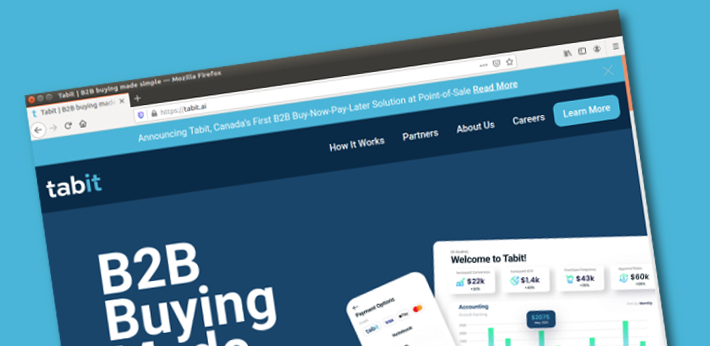Articles by Adam Zaki
Adam is a Reporter from Long Island and graduate of Brooklyn College.
Empathy in Design, Data in Development; How Specialized Fintechs are Bringing Humanity and Finance Together
March 15, 2022 Ahon Sarkar, GM of Helix
Ahon Sarkar, GM of Helix“I think the idea of being human has to exist at the core of your business. When you’re building a product, you have to start by asking ‘what’s the problem I am trying to solve and who is the person and what are they actually dealing with, and then how do I build it.’ You don’t build something and then bring it out to people. Empathy has to be the core of your product development.”
Ahon Sarkar is the GM of Helix, Q2’s BaaS arm, and a brand new homeowner. According to him, innovation happens when you define products based around problem solving, not creating products and then trying to force them on industries that desire innovation.
“I just finished buying a house, and it’s been a crazy process,” said Sarkar. “When I sent the wire to go buy my house, I went and asked my bank, ‘how will I know it’s been sent?’ Obviously I’m anxious about it,” he continued, “it’s the largest amount of money I have ever sent in my entire life.”
Sarkar said that his bank told him their system doesn’t give notifications that wire funds are indeed sent. The bank was like “‘oh, you won’t know.’ I was like what?”
“That day, I walked out and called our Product Owner for Wires and I said, ‘Kady, we have to build wire notifications.’ That’s empathy. That’s putting yourself in the shoes of the person and figuring out what is wrong with the system and making it better for a human being, as opposed to focusing on just the top line revenue.”
Helix’s whole mantra is about making finance human. By creating specifically tailored products for their clients, the company has developed both a brand and mindset internally and externally about their goals, values, and outlooks on what their work means to the greater good of both levels of consumer and B2B economics.
On top of offering employees complete flexibility on where and how they work, Helix also looks for people who are outside of the ‘cookie cutter’ software guru fintech employees are labeled as. Instead, Sarkar and Helix are looking for genuine human beings with life experiences that they can bring value to both the product and company’s culture.
“It’s hiring people that are empathetic, that are curious and are driven, because that propagates this idea into customer support, into operations and how we work with our bank partners,” said Sarkar. “It goes into marketing and how we’re talking about the overall message, so if it’s not at the core of what you do, at some point it will be pushed to the side so you can do the innovation and revenue you really want to do.”
“We have realized that you can innovate and drive revenue by being empathetic, by being human, and actually entrenching those values within the genetic fabric of the company,” Sarkar said.
When asked about the state of small business lending, Sarkar spoke about the data pools some companies are sitting on that would allow them to approve individuals for financial products. However it’s regulations according to him that are holding companies like Uber back from offering financial products to their employees.
Sarkar pitched the scenario of Uber lending a driver money at a cheaper rate because the information they have on their own employee may be able to prove their creditworthiness more than the information that is accessible to a bank.
“Let’s say you have an Uber driver, who has been on the job for four years. Five star driver, five thousand rides, Uber trusts this person. When that person walks into a bank, what does the bank see? Someone they never met before who makes $35K-$45K a year and comes with a bucket of risk. So that bank is going to run it through traditional underwriting, and that person may be challenged to get a loan because they have non-traditional income.”
According to Sarkar’s analogy, it’s Uber who should be funding this driver. “Uber trusts this person, Uber has been paying them for years. They know who this person is and they’re willing to extend more credit because they don’t think they are taking as much risk,” Sarkar said.
“So if you could take that idea and give Uber the ways to conform to a [financial] product that is based on what they already know about their drivers, those people might actually qualify for funds.”
Sarkar stressed that underwriters cannot even attempt to develop these products without the government giving these companies clearance to go out and provide these types of products for employees. “Whether it be gig economy workers or solopreneurs, or medium-sized business owners, it doesn’t matter,” he continued. “At the end of the day, if regulation doesn’t allow the underwriting for these products, no company is going to put them into practice.”
Whether it’s culture, product design or staffing a team, it seems that this idea of humanity is sticking to the fundamentals of Helix’s brand. “If you take the financial products and loans being written and just make them more practical and more human, I think we would be able to solve a lot of problems.” said Sarkar.
Fintech is Bringing Data to Banking, and It’s Going to Change Everything
March 9, 2022As the rush to innovate legacy finance and its surrounding institutions continues, companies across the fintech space are rushing to build tech-infused brands while designing and marketing innovative financial products. Paul Walker, Senior Vice President of Revenue and Partnerships at Helix, spoke with deBanked about how tech’s impact in finance will not only impact how money moves in a B2B space, but how it will impact the lives of everyone who works to earn and spend money.
Walker spoke about how many banks are sitting on stockpiles of potential revenue, but just don’t have the infrastructure to leverage it. “[Fintechs] are data driven companies, and banks have not been data driven,” said Walker. “They’re sitting on some of the most valuable data you can ever imagine, but it’s the fintechs that are able to apply and anticipate areas of a consumer’s need [with this data] that not even the consumer knew they needed.”

According to Walker, fintech’s incoming impact on banking will hit both consumer and commercial banking pretty quickly. He spoke about how things like payroll information can be leveraged by banks as a harnessing tool for data on particular individuals who might be ripe for certain financial products.
“Imagine something like [banks] tracking the fact that your payroll or direct deposit changed by 20%, that might indicate that you got promoted,” said Walker.
“If you got promoted, is that a good time to go and engage you in a [financial] service that might be appropriate?”
Walker continued to speak on how smaller fintechs are bringing new ideas to traditional financial products and services on a widespread basis through approach via a problem solving lens.
“Using context is where these fintechs have done a change in things, some of the things are fundamentals like paychecks two days early,” Walker said. “I think fintechs have really tried to think about these points and new services.”
Walker spoke about how fintech has impacted every facet of the financial system and how the industry’s vast array of companies makes up a pretty large basis of his company’s clientele. With a history of banks and credit unions being their primary customers, Q2’s branch into Helix appears to be an effort to meet a rising demand of tech’s desire to incorporate themselves into legacy banking.
“From a tech perspective, more-so than anything, one of the interesting things we’ve done which what appeals to a lot of folks is our long history of working with a long line of banks and credit unions,” said Walker. “Over the last few years, we have been on the forefront of working with fintechs, and I think we’ve brought some really unique partnership models to market.”
“We’ve combined the things that fintechs do really well, and the things that banks and credit unions do really well, especially in regards to oversight and understanding the regulatory environment that will keep someone out of hot water in a highly regulated space.”
When asked whether innovation is truly exponential, Walker was hesitant to identify a point in which innovation reaches limits. According to him, innovation has no limits. In Walker’s world, finance seems to be just a subset of societies’ immersion with technology.
“I don’t think innovation ever stops, and I think that’s the basis of technology,” he said. “I don’t think its specific to just finance, but when tech and finance converge, there’s an opportunity to say ‘how do we do this better’”.
Walker expanded on how innovation has changed legacy products over and over again in a short period of time, and how examples of this are just the starting point for what is to come. “Now we’re going from same-day to real-time payments. At some point, you’re not going to have a physical card, you will have a digital card.”
“I think data will continue to create innovation,” said Walker. “Ultimately, I’m confident that innovation is not a destination—it’s a journey.”
Five Takeaways from Q2’s Helix Launch Event
March 8, 2022Q2, a fintech that works to digitize large banks, hosted a launch event at the New York Stock Exchange last week for Helix, the company’s new [Banking as a Service] BaaS platform that intends to humanize fintech by tailoring products to specific user needs. Attended by Q2 clients and employees from across the fintech and crypto space, the event celebrated a legacy financial company making a push into the next dimension of finance.
Below are five initial takeaways from the event-
 Finance Needs a Face- Humanizing finance is the focus of Helix’s brand. By creating a human approach in their practices both internally and externally, the company is attempting to tailor financial services and products on an individual basis. The Helix employees deBanked spoke to seemed genuinely invested in defining the line between the human touch and innovating redundancy. Even the innovators themselves believe that a personal touch needs to a part of the marketing, selling and maintaining a service-based financial product.
Finance Needs a Face- Humanizing finance is the focus of Helix’s brand. By creating a human approach in their practices both internally and externally, the company is attempting to tailor financial services and products on an individual basis. The Helix employees deBanked spoke to seemed genuinely invested in defining the line between the human touch and innovating redundancy. Even the innovators themselves believe that a personal touch needs to a part of the marketing, selling and maintaining a service-based financial product.
Big Changes to Banking are Coming- There is an underlying narrative that fintech is building the infrastructure to support different types of value propositions from large financial institutions. As banks can no longer promise interest rates to provide a benefit from holding money in their accounts, many are beginning to get into financial education, guidance, and leveraging data to create personalized budgets, analyze spending habits, and offer money-saving tips. Rather than just be a place where consumers keep their money, look for banks to leverage fintech and data to create different types of services for their customers.
 Above: deBanked Reporter Adam Zaki speaks with Jonathan Price, Executive Vice President of Emerging Businesses, Corporate & Business Development at Q2
Above: deBanked Reporter Adam Zaki speaks with Jonathan Price, Executive Vice President of Emerging Businesses, Corporate & Business Development at Q2If You’re not Hybrid, You’re Doomed- Fintech companies as a whole, especially those attended by this event, always speak on the idea of creating a work environment that is as innovative as their products. By allowing employees to work fully remote, hybrid or in office at their own accord, all of the companies there have drastically improved company culture and employee retention. Not only does this open up the hiring pool outside of geographic restrictions, but these fintechs are able to hire experienced employees from around the industry who are leaving jobs they enjoy solely because they work for companies that demand work in the office to be full-time. According to executives of both Helix and Q2, they have seen production, communication, engagement and revenue increase as a result of giving employees a choice on where to work.
One executive actually laughed at the idea of employers demanding employees be in person for any type of job in fintech. “CEOs and executives that make employees show face for the sake of it will never survive in this industry,” said one executive from Helix.
New York Hasn’t Lost its Reputation- As many of the people who attended the event flew in from out of state, it appears that an out-of-towners’ look on New York City hasn’t changed much despite contrary belief since the pandemic. When asked about why the event was being held in Manhattan, those there believed that it was a no-brainer to have it in what they still believed to be the ‘main hub’ of finance. Even when discussing their individual excursion plans with whatever free-time they had left in the area after the event, attendees of the event seemed pumped to be able to checkout whatever spots they could around New York City.
Crypto Needs Regulation before Implementation- The biggest pushback attendees of the event expressed when it came to the crypto space was a lack direction when it comes to regulation. Banks and large financial institutions are aware, educated, and eager to begin widespread implementation of digital assets and financial products that use them, but are waiting for the government to show signs of life when it comes to regulation of the space. Until the government says how crypto will operate, no large scale financial institution will invest both time and money into creating new products around it.
Can a Merchant Fund Themselves with Their 401k or IRA? Sort of
March 3, 2022 “There is a way to use a 401k to fund a business, and it’s possible without triggering a taxable event within the retirement account.”
“There is a way to use a 401k to fund a business, and it’s possible without triggering a taxable event within the retirement account.”
Daniel Blue, Owner of a merchant and consumer learning program about utilizing retirement funds called Quest Educations, believes that merchants are overlooking untapped funds that they have already paid into when searching for capital to fund their businesses. According to him, not only does the IRS actually allow individuals to tap into their retirement plans if they fulfill certain qualifications, but banks and Wall Street have a vested interest in keeping this information under wraps.
“A Traditional IRA or a 401k from an old job can convert into a Solo 401k,” said Blue. “Since most IRAs and 401ks from previous employers don’t allow you to access the money inside the account penalty- and tax-free, the ‘Solo’ 401k is the solution to that problem.”
A ‘Solo’ 401k is an IRS-approved retirement account for an entrepreneur who doesn’t have any W-2 employees on their payroll. If a merchant works with an entire staff of freelancers or solo, they can convert their nest egg into this type of 401k.
Blue explained in detail about how this particular type of funding is done. By tapping into what the IRS calls a ‘loan feature’ on the Solo 401k, merchants can actually go in and get cash.
“Per the IRS, the loan feature allows you to take fifty-percent or $50k (whichever number is less) out of the Solo 401k penalty and tax-free,” said Blue. “The money taken out must be paid back to the Solo 401k within five years to avoid a taxable event.”
“There is an interest rate on this loan,” he continued. “Once locked in, the interest rate is fixed and returned to the Solo 401k. The interest rate is prime plus one or two percent. The money taken out of the Solo 401k via the loan feature can be used to fund a business.”
This type of loan isn’t as risky as it sounds. Blue says that the merchant isn’t risking their retirement accounts should they default.
“The IRS requires that quarterly payments get made back to their Solo 401k, and the loan must be paid in full within five years to avoid a taxable event,” he said. “If the loan gets into a default status, the remaining loan balance becomes taxable income. [The merchant] doesn’t lose their retirement account or their business if their Solo 401k loan gets into default status.”
Blue referred to the process as a merchant ‘becoming their own bank’. In a time where finding different avenues of funding is the name of the game in small business lending, harnessing a niche customer to provide them a personalized, low risk financial product seems like a no-brainer if the qualifications of funding are met.
Why is Canadian Fintech Sizzling?
March 1, 2022 Downtown Montreal
Downtown MontrealIn recent weeks, Canadian fintech companies have made major splashes in the world market. In the sphere of acquisitions, lending, funding, products and even digital assets, multiple Canadian cities and the companies that call them home have gained a reputation for being a focal point in fintech progression. Cities like Vancouver, Toronto, and Montreal have become start-up hotspots for companies looking to ride the wave of Canadian financial innovation.
In the country’s most internationally impacting financial move, Montreal-based payments company Mobeewave’s acquisition by Apple is set to come to fruition, as the company is about to take their phone-to-POS mobile merchant terminal live around the world. Apple acquired Mobeewave last year for $100M and will use the company’s technology to allow merchants and customers to conduct payment transactions by touching phones.
Other companies of note are Hopper, the Montreal-based mobile travel agency that is embedding ‘travel fintech’ into their products. Things like insurance, price drop guarantees, and price freezing are now offered on the Hopper app, which is now valued over $5B after an influx of capital from Brookfield Asset Management.
BNPL giant Klarna has also made moves in the north, opening offices in both British Columbia and Quebec in an attempt to further their expansion into the Canadian market. In a recent interview, the company’s CEO said their research had found at least half of Canadian shoppers were a prime contender to get the best out of Klarna’s services.
So this all begs the question- Why is Canada so ripe for fintech?
“We’re a fast growing market with a strong immigration policy, cheaper technical talent, and strong government hiring incentives,” said Tal Schwartz, Senior Product Manager at Nomis Solutions. “Secondly, we’ve been successful at ‘Canadianizing’ global solutions. For example Brex and Ramp have no client presence here, but Caary and Float have successfully built homegrown solutions that fill a local need.”
Schwartz spoke further on Canadian companies putting their own improvements on established products, making ‘Canadianized’ versions of fintech products and ideas. “Revolut tried entering Canada with little success,” said Schwartz. “Now two years later Koho, Wealthsimple and Neo have cornered the digital banking market from within.”
 Even Canada’s legacy financial institutions have been challenged by fintech, as the nation with the notorious ‘Big Five Banks’ has seen neobanks creeping towards the top as the highest used, as the neobank dubbed Equitable Bank is now Canada’s 7th largest after acquiring Saskatoon-based Concentra Bank earlier this month. Equitable has newly grown its mortgage portfolio thanks to its partnership with Canadian fintech Nesto, a mortgage broker marketplace. The move also gives Equitable a footing in the credit union space, as Concentra provides treasury and trust services to over 200 credit unions in Canada.
Even Canada’s legacy financial institutions have been challenged by fintech, as the nation with the notorious ‘Big Five Banks’ has seen neobanks creeping towards the top as the highest used, as the neobank dubbed Equitable Bank is now Canada’s 7th largest after acquiring Saskatoon-based Concentra Bank earlier this month. Equitable has newly grown its mortgage portfolio thanks to its partnership with Canadian fintech Nesto, a mortgage broker marketplace. The move also gives Equitable a footing in the credit union space, as Concentra provides treasury and trust services to over 200 credit unions in Canada.
Even the metaverse has taken interest in what Canadian finance can offer it. Terra Zero, a Canadian metaverse real estate platform is now offering mortgages on Decentraland for those looking to purchase property in the trendiest space on the internet.
Canadian finance has made a big leap since a year ago. Pandemic-induced restrictions decimated the country’s financial fortitude, and international competition has never been more intense. Like Schwartz mentioned, it’s the ability for Canadian companies to innovate the innovators, using ideas stemming from other products to “Canadify’ fintech, that has surpassed their industry past the point of survival.
“I think Canadian fintech is hot right now because in Canada, we don’t have the alphabet-soup-level of federal bodies as the U.S. does, primarily leaving enforcement to smaller, more personal, more flexible provincial organizations,” said Nick Chandi, CEO of Forward AI, a Vancouver-based fintech. “In addition, Canada is set on Open Banking, with the Advisory Committee’s final report published in August 2021 and follow-up survey showing that the majority of the Canadian financial services industry wants to move ahead on implementing open banking in Canada ASAP.”
On top of financial friendly politics, Chandi believes it’s Canada’s concise population centers that breed collaboration and innovation. “It’s also a smaller community,” Chandi said. “With most fintech workers living in one of a few key cities, it’s easy to network and make things happen.”
Why a Small Business Finance Company Brought BNPL to B2B Transactions
February 27, 2022 Tabit, a subsidiary of Vancouver-based Merchant Growth, has rethought business financing by integrating a newly conceived consumer-based product, (Buy Now Pay Later) BNPL to the B2B transaction world. As a decade-old small business finance company, Merchant Growth’s launch of Tabit shows how alternative financiers from across North America are trying to find new financial products that serve tomorrow’s merchants.
Tabit, a subsidiary of Vancouver-based Merchant Growth, has rethought business financing by integrating a newly conceived consumer-based product, (Buy Now Pay Later) BNPL to the B2B transaction world. As a decade-old small business finance company, Merchant Growth’s launch of Tabit shows how alternative financiers from across North America are trying to find new financial products that serve tomorrow’s merchants.
According to David Gens, CEO and President of Merchant Growth, Merchant Growth’s steady business provides Tabit with the infrastructure, manpower, and underwriting capabilities it needs to develop this kind of unique financial product.
“At a Money 20/20 conference many years ago, a speaker made a comment that resonated with me,” said Gens, when asked about the origin ideas in Tabit’s development. “That speaker, I forgot who it was now, said that small business financial services share more similarities with consumer offerings than they do with the mid-market and commercial space. In other words, innovations that become successful in the consumer space end up translating over to small business.
“Ever since then I’ve taken that to heart and as we watched the explosive growth in the consumer BNPL space,” Gens continued. “We were constantly thinking about whether the timing is right to translate this over to B2B transactions.”
Gens also gave credit to his industry awareness, saying that he saw those on the international stage having similar ideas.
“In the past 12 to 24 months, we’ve also seen a number of announcements internationally of companies raising VC funds to do just this, but nobody has yet announced in Canada,” he said. “In our strategic planning meetings, we looked closely at our company’s capabilities and determined that we are well suited to build this.”
Tabit’s perceived advantage is that they can reinvent the lending space by not wrapping a financial product in a digital service like other techy lenders, but instead use relationships between businesses and their vendors in order to keep their cost of acquiring customers down, thus having the cost of financing cheaper for the borrower.

“Tabit is our answer for how to reach as many small businesses as possible in an economically sustainable way, therefore delivering a cost-competitive product,” said Gens. “That is by leveraging the relationships that B2B sellers have with their buyers, [and] it’s a great way to scale the delivery of SMB credit and provide significantly greater access to capital at competitive rates.”
Gens also touched on the idea of the need for new financial products to compete with innovation in lending. Despite recognizing the existence of digitally native merchants and the desire to incorporate tech into a financial product, Gens doesn’t seem to think there is a need to overhaul the market with experimental ideas.
“I think that the launch of Tabit is an embodiment of the trend of digital consumer experiences proliferating in the small business and B2B space,” said Gens. “[It] also speaks to the growing influence of digitally savvy and millennial business owners on SMB fintech offerings. Credit is fundamentally an old product that’s been around for thousands of years. It’s the way in which it is delivered and how and when that will continue to evolve.”
“It is also becoming increasingly dynamic and fluid with real-time data and machine learning models, creating unprecedented convenience as well as accuracy in pricing of risk, which drives accessibility,” Gens continued. “Innovation should remain focused on minimizing the friction and “number of clicks” for users of credit, freeing up time to be spent on other valuable activities.”
At the consumer level, BNPL has faced some scrutiny by both users and regulators. Credit being available at a moment’s whim at the point of sale, with limited time to decide on the consequences of taking on a financial product has had many people question the ethics and long term outlook on it. Gens however, is not one of those people.
“I struggle to see how low-interest point-of-sale financing can be considered predatory,” said Gens. “Such a product eases financial burdens, it does not increase them. Particularly in the B2B space where such an offering helps accelerate growth for small businesses, I am optimistic that regulators will perceive B2B BNPL payment solutions favorably.
SMB Lending Fraud is Up, and Non-Bank Providers are Most Impacted
February 24, 2022 Small business lending fraud increased almost 7% since 2020, according to a recent study done by LexisNexis Risk Solutions. They found that on top of fraud costing lenders time and money, increasing numbers hit the alternative financing space harder than any other lending sector.
Small business lending fraud increased almost 7% since 2020, according to a recent study done by LexisNexis Risk Solutions. They found that on top of fraud costing lenders time and money, increasing numbers hit the alternative financing space harder than any other lending sector.
“Seventy percent of the non-bank lenders that participated in the survey indicated that they had seen a rise in fraud attempts during the past year,” said Tom Hunt, Director of Business Risk Strategy at LexisNexis Risk Solutions when asked about non-bank lender experiences with fraud. “The other item of note regarding this group was that they reported the largest overall increase compared to the previous year in terms of fraud losses as a percent of revenue, growing from an estimated 6.8% to an estimated 8%, a more than 17% increase.”
The study found an increase in labor to combat fraud, especially as PPP fraud ran rampant during the pandemic, as well as a rise in spending on combating fraudulent business credentials or stolen identities that were trying to access PPP money. It also found an increase in mobile lending channels, where the study claims the largest share of lending transactions originate. In the mobile space, fraud losses are up over 10% for both non-bank lenders and big banks.
The study also found that lenders who had advanced or ‘layered’ identity protocols experienced significantly less fraud in their transactions. Although more of an initial investment, these protocols prevented companies who had them from being a part of the rise that took place during the pandemic.
Hunt spoke about the pandemic’s impact on fraud, and how it has raised costs for financiers who already have substantial overhead. “The impact of the pandemic on costs associated with lending fraud is clear, although there is no one-size-fits-all model to solve for SMB fraud. When employing a layered solution approach, lending firms with digital channel business models should implement solutions for their unique channel issues and fraud,” said Hunt.
“One of the best fraud prevention approaches involves a layering of different solutions to address unique risks from different channels, payment methods and products. This approach also allows lenders to integrate additional capabilities and operations more easily within their fraud prevention efforts.”
When speaking further about the digitization of the approval process, Hunt spoke about the need for constant innovation in KYC protocols. According to him, the only way to combat the latest fraud is to have the latest security.
“The digital channel environment is upon us and continues to grow as customers and prospects expect digital lending options, particularly during times that make in-person transactions more challenging,” said Hunt.
“At the same time, fraud is evolving and has become more complex for lenders. Various risks can occur simultaneously with no single solution to solve for all of them. To be effective, fraud tools now need to authenticate both digital and physical criteria simultaneous with identity and transaction risk.”
The study casts blame on the pandemic as the main cause of rising fraud in the industry. With PPP fraud cases popping up all over the country, pandemic-induced fraud will be in the mix of financial scandals for many years to come. The entire study can be downloaded here.
Tomorrow’s Broker/Funder Relationship, According to Funders
February 23, 2022 “In the end, we all press zero to talk to someone.”
“In the end, we all press zero to talk to someone.”
The conversation about what characteristics will make up tomorrow’s loan brokers is surrounded with ideas latched in fintech, social media, and more. Brokers from around North America have been showcasing these new strategies on social media or in chats with deBanked, which sparked the question — what do the funders think of all of this?
Efraim Kandinov, CEO of FundFi Merchant Funding, has a lot of ideas about how brokers should function in a constantly changing financial landscape. According to him, it’s not the style of funding or modernization of business logistics that will make tomorrow’s broker, but it’s leveraging ethics with both merchants and funders to preserve future business down the line.
“I believe more and more merchants look for the digital aspect and remove the broker because of the dishonesty that we usually uncover and want something clean without interpretation. Many issues with merchants in my opinion [stem] from being misled by the broker, promising something after to just take this deal or promising to get payments lowered and take an overleveraged position.”
Other funders think much differently, identifying a sense of community being brought about by tech, having a ‘we’re in this together’ type of mantra to hold the legacy industry up.
“There’s a sense of familiarity when dealing with my brokers,” said Amanda Schuster, CEO and President of Fundhouse LLC. “We’re your friends, we get you, we get your business.”
Schuster believes that relationships between funders, brokers and merchants alike will help them weather the storm of tech’s emergence into their industry.” We are your business and it’s just as important to us that you succeed,” she said. “I have business owners that I still speak to this day, that I funded over five years ago.”
Schuster dismissed companies like PayPal, Square, and Shopify’s takeover of small business lending, circling back to the interpersonal value that a broker provides as a face to a financial product.
“At the end of the day, business is always about the people,” she said. It’s about creating a need and filling it. You can’t do that on a website.”
When asked about the value of this happy-go-lucky community of brokers, funders and merchants, Kandinov brought up how some brokers have found ways around the ‘repeat business’ model of funding deals, thus making relationships between brokers and merchants pointless.
“I think brokers are less caring of repeat business because they have discovered a short term model of stack, stack, stack, and then put in a reverse. This front loads commission. I believe a broker has a huge advantage in creating the relationship. [This] unfortunately is starting to take a back seat to a new way to score big commissions.”
Kandinov spoke about brokers who will say anything to make a sale carelessly shooting themselves in the foot when it comes to forming a book of business. By saying whatever they need to get paid now, merchants are either going straight to the funders to big tech for their next source of funding.
“Jaded merchants then look to only speak to the funding house in the future and stay or just prefer the direct to consumer model of fintech,” said Kandinov.
Despite these feelings, Kandinov does believe that there’s a bright outlook on the future of the broker/funder relationship if some change occurs.
“[Brokers] deserve their high commissions as they do a lot of work. I think funding houses have much less overhead with the broker model, but lately with the broker behavior it is almost pushing themselves out if it continues. I do not believe fintech alone is advantageous, just in speed and clarity. It’s a byproduct of poor behavior.”































